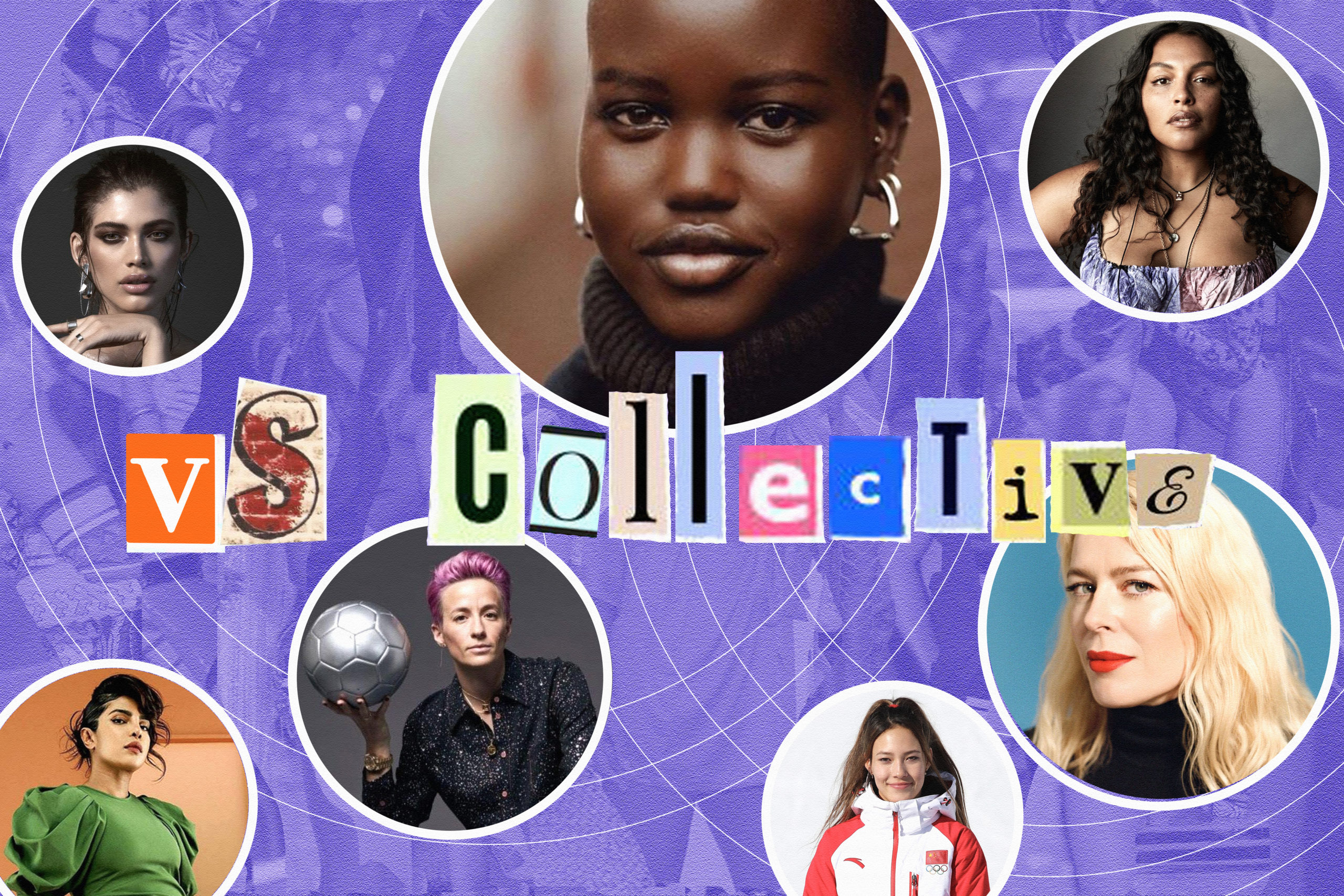In a long-overdue effort to rebrand and leave behind an era of sexy fashion shows, bejeweled bras, and Angels (yes, the Angels are no more). Ever since I’ve been a teenager, I’ve been haunted by Angels. In advertisements, on billboards, or every time I went to a mall. They set a standard that 99.99 percent of women were not ‘gifted’ with. A standard that even the Angels themselves struggled to attain. Whispers about disordered eating and starvation-level pre-runway-show diets would occasionally trickle onto social media.
The change is likely a way to distance the lingerie retailer from their controversies, which have piled up over the last few years. These include its owner, Leslie Wexner’s ties to Jeffrey Epstein, the harassment claims against its former top executive Ed Razek and callouts over the lack of diversity both within the company and in regards to casting models.
The new “VS Collective” representatives include models Paloma Elsesser, Adut Akech, and Valentina Sampaio; soccer star Megan Rapinoe; professional skier Eileen Gu; actress and businesswoman Priyanka Chopra; and advocate Amanda de Cadenet. In a press release, the group is described as “an ever-growing group of accomplished women who share a common passion to drive positive change.” It also stated, “Through social, cultural, and business relationships, the VS Collective will work to create new associate programs, revolutionary product collections, compelling and inspiring content, and rally support for causes vital to women.”
The newly appointed chief executive of the brand, Martin Waters, acknowledged its past mistakes and said, “When the world was changing, we were too slow to respond,” he said. “We needed to stop being about what men want and to be about what women want.” While he is yet another male CEO at a company that caters to women, Waters is the only man on the seven-member board.
While watching people battle over this rebrand is entertainment in itself, I am personally not sure how the VS collective plans to become a more ‘woke’ brand and rise from its current scandals. The VS Collective is the bare minimum, and it comes way too late. When you compare Victoria’s Secret to other clothing brands that have made far more significant leaps forward, such as Athleta’s showcasing of older, white-haired models and Universal Standard’s range of sizes up to 4XL.
As tempting as it is to want to burn it all down, Victoria and her secrets are likely to endure them. Even though the brand may decline, it’s one of the biggest players in the game. Representation still matters. Seeing ourselves — especially as beautiful and desirable matters. If Victoria’s Secret’s new additions mean that even one girl feels a little more beautiful, then those are steps in the right direction.
Words by Rhea Gupta.
Graphics by Ilisha Sharma.

